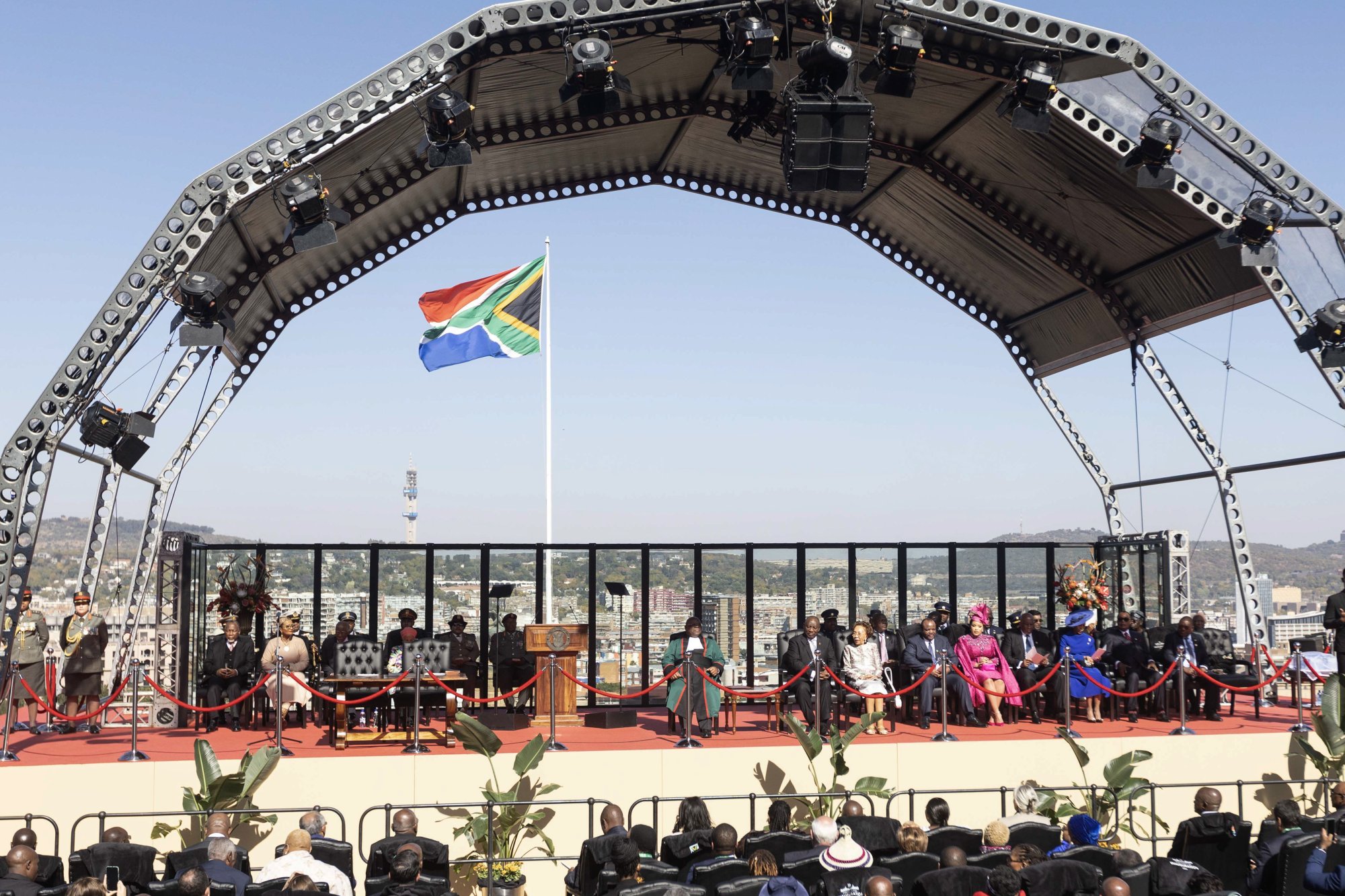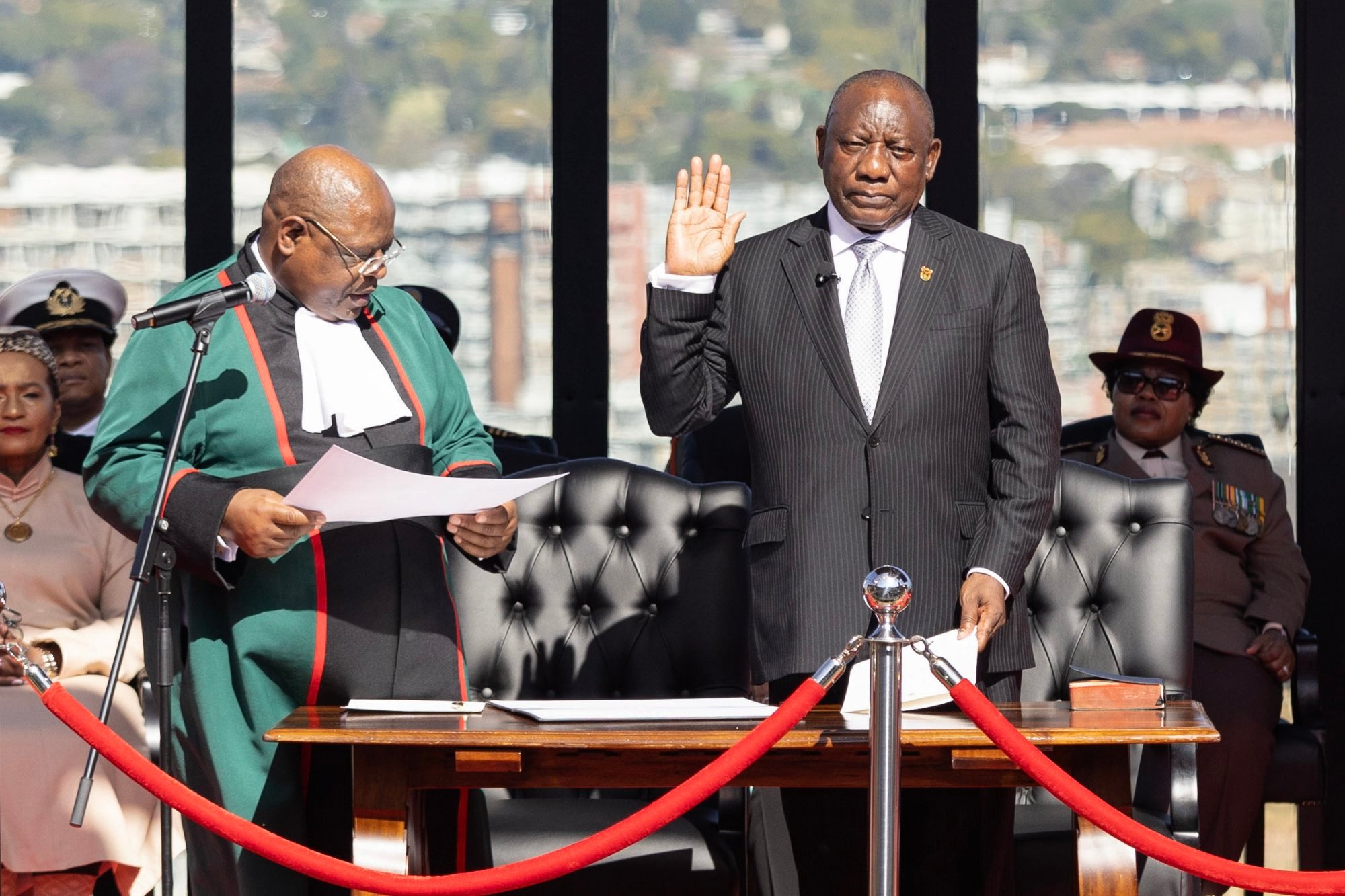South Africa’s president Cyril Ramaphosa hailed the formation of a broad coalition government as the “beginning of a new era” on Wednesday as he was sworn in for a second full term.
“The formation of a government of national unity is a moment of profound significance. It is the beginning of a new era,” Ramaphosa, 71, said, after general elections last month produced no outright winner for the first time in 30 years.
Chief Justice Raymond Zondo led Ramaphosa’s oath of office ceremony before lawmakers, foreign dignitaries, religious and traditional leaders and cheering supporters at the Union Buildings, the seat of government.
“In the presence of everyone assembled here, and in full realisation of the high calling I assume as President … I Matamela Cyril Ramaphosa swear that I will be faithful to the Republic of South Africa,” Ramaphosa said.
Lawmakers voted overwhelmingly to re-elect the 71-year-old last week, after a May 29 general election that produced no outright winner.
After Ramaphosa took the oath, a band played the national anthem, followed by a 21-gun salute and a fly past by army helicopters towing large South African flags.
It was the third time Ramaphosa took the oath.
The former trade unionist turned millionaire businessman first came to power in 2018, after his predecessor and rival Jacob Zuma was forced out before the end of his term under the cloud of corruption allegations.

Ramaphosa was then reappointed for a full five-year term in 2019. In South Africa, voters elect the parliament, which then votes for the president.
Ramaphosa promised a new dawn for South Africa, launched an anti-graft drive and started to reform a collapsing energy system.
But under his watch, the economy languished, blighted by power cuts, crime remained rife and unemployment increased to 32.9 per cent.
In May, he led the ANC into yet another vote, but the historied party of the late Nelson Mandela came out bruised.
It won only 40 per cent – down from 57.5 per cent five years earlier.
For the first time since the advent of democracy in 1994, it lost its absolute majority in parliament and was left scrambling to find coalition partners to remain in power.
It has since agreed to form what it calls a national unity government with several other parties.
They include the centre-right Democratic Alliance (DA), the Zulu nationalist Inkatha Freedom Party, the anti-immigration Patriotic Alliance and the small centre-left GOOD party.

The deal allowed Ramaphosa to comfortably see off a last-minute challenge by firebrand leftist politician Julius Malema, with 283 lawmakers in the 400-seat National Assembly voting to put him back in office.
But it has faced a vociferous opposition from the left, with Malema’s Economic Freedom Fighters and former president Zuma’s uMkhonto weSizwe (MK) refusing to take part and denouncing the inclusion of right-wing parties and the white-led, free-market DA.
While investors have welcomed the inclusion of the DA, which wants to boost growth through structural reforms and prudent fiscal policies, analysts say sharp ideological divisions between the parties could make the government unstable.
Just before the election, Ramaphosa signed into law a National Health Insurance bill that the DA says could collapse a creaking health system. It was unclear what would happen to that law under the new government.
The DA advocates scrapping the ANC’s flagship Black economic empowerment programme, saying it hasn’t worked – a highly contentious topic in a nation grappling with huge inequalities, some inherited from apartheid.
Ramaphosa has yet to announce the make-up of his new government, which he will have to negotiate with members of the new alliance.

